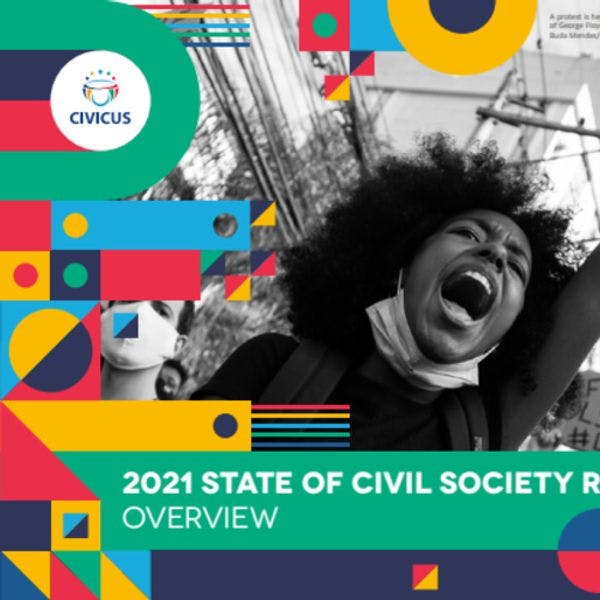CIVICUS
State of civil society report 2021
By CIVICUS
The pandemic offered a stress test for political institutions, and most were found wanting. The inadequacy of many systems of healthcare and social support was revealed, and the ways in which economies fail to work for many people were once again demonstrated. The world was not ready: international cooperation was needed to respond to a global challenge, but was lacking as governments asserted narrow self-interest, birthing the dismal practice of vaccine nationalism. Vast disparities in vaccination rates between economically powerful states and the rest exposed an ugly reality in which the value of a human life depends on the lottery of birthplace.
State after state asserted top-down, command-and-control approaches that seemed to show little trust in the wisdom of people and communities. The first instinct of many presidents and prime ministers was to act as though the pandemic was a threat to their power, rolling out well-rehearsed routines of repression. States took on broad emergency powers, and at least some clearly used the pandemic as a pretext to introduce rights restrictions that will last long after the crisis has passed. At a time when scrutiny was more difficult, the suspicion was that some political leaders were opportunistically consolidating their power, rushing through repressive measures they had long wanted to unleash.
Many states poured out official propaganda and, under the banner of controlling ‘false information’, sought to control the flow of information, ramping up censorship and criminalising legitimate inquiry and commentary, including attempts to hold them to account for poor pandemic performance and whistleblowing by healthcare workers. China’s customary response of controlling narratives and suppressing dissent enabled the virus to become a pandemic, but the state did not relent. China was in the front rank of states that expanded surveillance practices and trampled on the right to privacy, on the grounds of preventing virus spread, developing surveillance capacities that will likely enable ongoing intrusion.
States increased their coercive power, unleashing violent enforcement of restrictions on movement and suppressing protests, treating the public as targets for enforcement measures rather than partners in defeating the virus. In the Philippines, people were put in dog cages for breaking pandemic regulations. In several Middle East and North African states, including Bahrain, Egypt, Iran and Saudi Arabia, civil society activists imprisoned for their work to defend rights remained in crowded jails, at increased risk of contracting the virus and with little hope of access to adequate healthcare. In Algeria, the state freed some prisoners on safety grounds but filled up the space with activists newly sent to jail.
